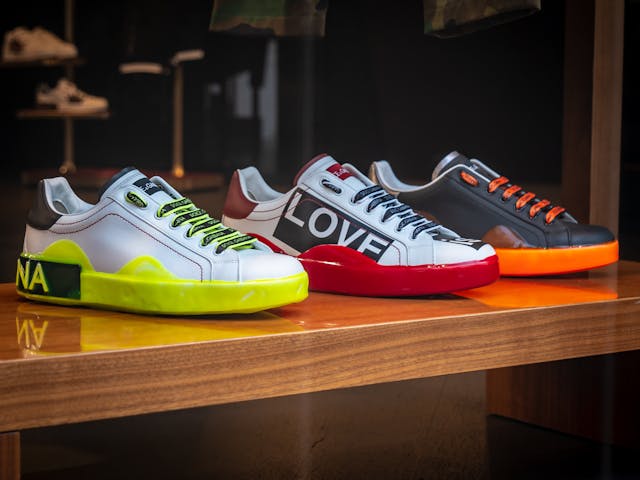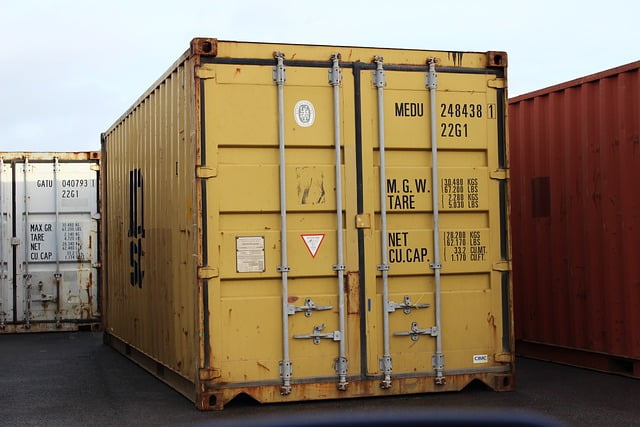The sneaker reselling industry has skyrocketed over the past decade, becoming one of the most lucrative side hustles for people with a passion for footwear and entrepreneurship. If you’ve ever wondered how to start reselling shoes and turn your love for sneakers into profit, you’re in the right place. Whether you’re looking to build a full-time business or just earn extra income on the side, this guide will walk you through every step of the process, from sourcing shoes to building an online presence. Let’s dive into the ins and outs of the reselling game!
1. Understanding the Sneaker Reselling Market
Before you jump into reselling shoes, it’s crucial to understand the dynamics of the market. The sneaker resale industry thrives on supply and demand. Limited releases, collaborations with celebrities, and exclusive designs create a hype that drives up the value of certain shoes. Resellers capitalize on this by buying sneakers at retail prices and flipping them for a higher amount.
Key Factors Influencing the Sneaker Reselling Market:
- Brand collaborations (e.g., Nike x Off-White)
- Limited editions or rare releases
- Popularity of athletes or influencers associated with a brand
- Condition of the shoes (new vs. used)
Being aware of these factors can help you identify which shoes will have higher resale value and determine your buying and selling strategies.
2. Choose Your Niche: New or Used Shoes?
When it comes to reselling shoes, you need to decide whether you’ll focus on new or used sneakers. Each niche has its pros and cons.
- New Shoes: This niche often involves participating in sneaker drops and trying to snag limited releases from brands like Nike, Adidas, or Jordan. However, the competition is fierce, and it requires an upfront investment.
- Used Shoes: Selling second-hand sneakers is more accessible since you can source shoes from thrift stores, garage sales, or online marketplaces like eBay. The key here is finding shoes that are in good condition and cleaning them up before reselling.
3. Sourcing Shoes for Reselling
Your success as a reseller depends on your ability to source desirable shoes at reasonable prices. Here are some ways to find shoes to resell:
Retail Stores
Many resellers line up for sneaker drops at brick-and-mortar stores to grab limited releases. Big brands like Nike and Adidas have exclusive collaborations that can sell out in minutes, so being prepared is essential.
Online Platforms
Numerous online platforms, such as Footlocker, SNKRS, and Adidas, offer limited releases. Signing up for alerts, newsletters, or raffles can increase your chances of securing a pair.
Thrift Shops and Garage Sales
These are goldmines for sourcing used sneakers. You can often find designer brands or vintage shoes that hold value in the reselling community. Patience and a good eye for spotting valuable items are essential for this sourcing method.
Online Marketplaces
Platforms like eBay, StockX, and GOAT are great places to purchase sneakers at lower prices and resell them for a profit. Keep an eye on auctions and buy-now deals to grab sneakers in high demand.

4. Setting Up Your Reselling Business
Now that you have a good idea of how to source shoes, it’s time to set up your business. Here are the steps:
Register Your Business
Depending on how serious you are, you may want to register your business as an LLC or sole proprietorship. This gives your operation legitimacy and can provide tax benefits.
Create a Website or Online Store
You’ll need a platform to sell your shoes. While you can start by using online marketplaces like eBay or StockX, setting up your own website allows you to build your brand and have more control over your sales.
Use Social Media for Promotion
Social media is a powerful tool in the reselling game. Platforms like Instagram, TikTok, and Twitter allow you to showcase your inventory, engage with followers, and build your brand. Using hashtags like #SneakerReseller or #SneakerCommunity can increase your visibility.
5. Pricing Your Shoes
Pricing is a critical aspect of your reselling business. Here are some factors to consider when setting prices:
- Market Value: Research current prices for the same shoe on platforms like StockX and GOAT to determine a competitive price.
- Condition: New shoes will obviously command higher prices, but even used shoes can sell for a premium if they are in excellent condition or are rare.
- Rarity: Limited edition shoes or collaborations tend to be more expensive because of their scarcity.
- Size: Some sizes are in higher demand than others. For instance, men’s sizes between 8 and 12 are typically more popular.
By keeping tabs on these factors, you’ll be able to price your sneakers for a profit while staying competitive in the market.

6. Shipping and Handling
Shipping shoes may seem straightforward, but there are a few things you need to consider:
- Packaging: Make sure to use sturdy boxes and protective padding to avoid damage during shipping.
- Tracking: Always provide tracking information to your buyers to ensure transparency and build trust.
- Shipping Costs: Factor shipping costs into your pricing. Some platforms offer shipping discounts, but it’s essential to research your options.
7. Selling Platforms for Resellers
While having your own website is ideal, many resellers get their start on established platforms. Here are some of the best ones:
eBay
eBay is one of the largest marketplaces for resellers, offering both auction-style and buy-it-now formats. Fees are typically around 10%, and it’s an excellent platform for beginners.
StockX
StockX functions as a marketplace where you can buy and sell sneakers, with prices fluctuating based on supply and demand. It’s a trustworthy platform due to its verification process.
GOAT
GOAT is another reputable platform for sneaker resellers. Like StockX, it verifies the authenticity of shoes before they are sent to buyers, which adds credibility to your listings.
8. Building a Brand Around Your Reselling Business
Once you’ve established yourself as a reseller, it’s time to build a brand. This is what will separate you from other sellers and attract loyal customers.
Create a Unique Selling Proposition (USP)
Your USP is what sets you apart from the competition. It could be anything from offering rare sneakers to providing top-notch customer service.
Build Trust with Your Customers
Transparency is key in the reselling game. Make sure your listings are honest about the condition of the shoes, and always provide accurate shipping times and tracking details.
9. Scaling Your Reselling Business
As you become more familiar with the reselling industry, you may want to scale your business. Here are some ways to grow:
- Invest in bulk purchases: Once you have enough capital, buying shoes in bulk can increase your inventory and profits.
- Expand to other products: Some resellers branch out into other niches, such as clothing or streetwear, to diversify their business.
- Outsource tasks: As your business grows, consider outsourcing time-consuming tasks like shipping, inventory management, or customer service to free up your time for strategy and growth.

10. Legal Considerations for Reselling Shoes
Although sneaker reselling is legal, there are a few legal considerations you need to keep in mind:
- Sales Tax: Depending on your location, you may be required to collect and pay sales tax on your transactions.
- Counterfeit Laws: Always verify the authenticity of the sneakers you purchase and resell. Selling counterfeit products can lead to legal issues and damage your reputation.
Related: How much does a Shipping Container Cost – Complete guide
Conclusion
Reselling shoes can be a profitable and exciting venture if approached correctly. By understanding the market, sourcing valuable inventory, and pricing your products strategically, you can build a successful reselling business. With patience, dedication, and the right strategies, you’ll be well on your way to turning your passion for sneakers into a thriving business.
Start small, stay informed, and always be on the lookout for the next hot release — your journey in reselling shoes is just beginning!
FAQs
Here are 5 common questions and answers about to start reselling shoes:
1. What is the most important factor to consider when starting a shoe reselling business?
Answer: The most important factor to consider when starting a shoe reselling business is understanding the supply and demand of the sneaker market. Limited edition releases, brand collaborations, and popular designs tend to drive up the value of certain shoes. Knowing which shoes are in high demand and will sell for a profit is crucial to your success as a reseller.
2. How can I source shoes for reselling at affordable prices?
Answer: You can source shoes for reselling from various places such as thrift stores, garage sales, or online platforms like eBay, GOAT, and StockX. You can also participate in sneaker drops at retail stores or buy from online sneaker shops. Patience and research are key to finding good deals that allow you to turn a profit.
3. What are the best platforms for selling resold sneakers?
Answer: The best platforms for selling sneakers include eBay, StockX, and GOAT. Each of these platforms has large, established audiences of sneaker buyers. eBay allows for both auctions and direct sales, while StockX and GOAT offer verification services to ensure the authenticity of shoes, which builds trust with buyers.
4. Should I focus on new or used shoes when reselling?
Answer: Whether to focus on new or used shoes depends on your target market and available resources. New shoes, especially limited editions, often have higher resale value but can be more competitive to acquire. Used shoes, on the other hand, can be sourced more easily from thrift stores or online, and if in good condition, can still sell for a profit.
5. What steps can I take to scale my shoe reselling business?
Answer: To scale your shoe reselling business, you can invest in bulk purchases, expand into related niches like streetwear, or outsource tasks such as shipping and customer service. Building your own brand, creating a website, and leveraging social media to increase visibility are also key strategies to grow your business over time.
Related: How to Start a Manufacturing Business




